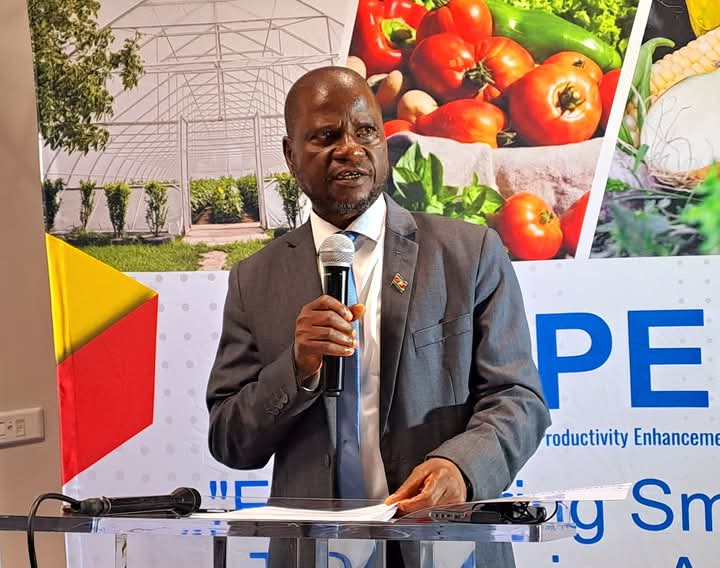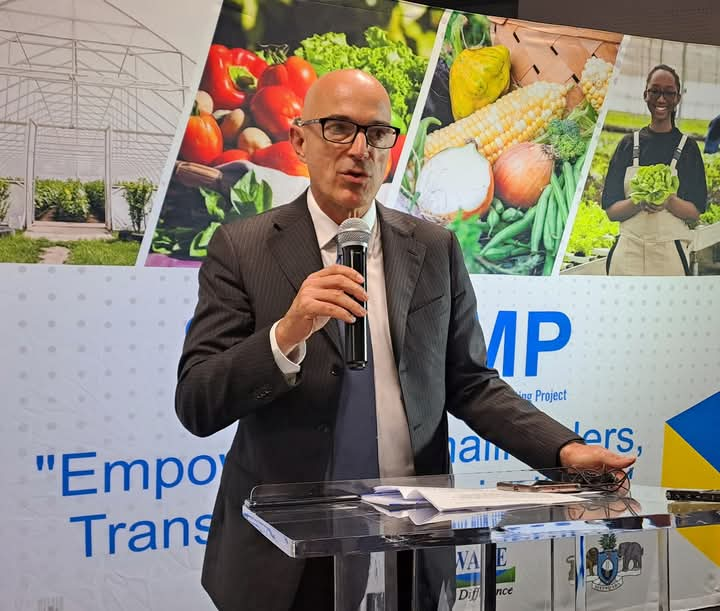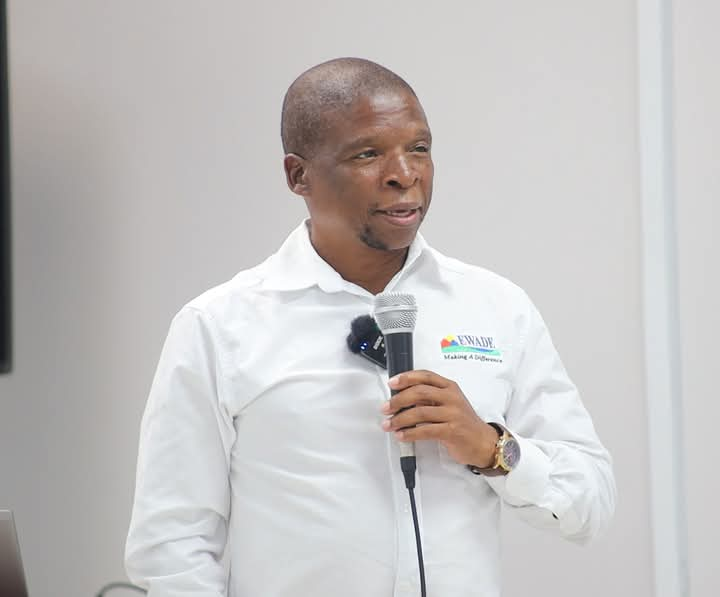
The Kingdom of Eswatini has launched the Smallholder Agriculture Productivity Enhancement and Marketing Project (SAPEMP), a transformative initiative aimed at boosting smallholder farmer productivity, strengthening market linkages, and enhancing climate resilience in the agricultural sector.
The project, valued at E851 million (US$ 45.5 million), is co-financed by the International Fund for Agricultural Development (IFAD) and the Green Climate Fund (GCF).
Speaking at the launch event held at the MVA Building in Mbabane, the Minister for Agriculture, Mandla Tshawuka, hailed the project as a “milestone in Eswatini’s agricultural sector” that will uplift smallholder farmers, particularly women, youth, and vulnerable communities.
“SAPEMP is not just a project; it is an opportunity to transform lives. It will empower thousands of smallholder farmers, create employment, and ensure food sovereignty for our nation,” the Minister stated.
The project aims to improve the agricultural productivity of smallholder farmers and link them to lucrative markets. SAPEMP aligns with the Ministry of Agriculture’s Strategic Plan, which focuses on three key pillars: service delivery and decentralization, food sovereignty, and employment creation.
The project directly supports the second and third pillars by increasing food production, improving farmer incomes, and reducing youth unemployment. The funding, a 60% grant and 40% concessional loan, will enable the implementation of critical programs that would otherwise be difficult to finance.
SAPEMP is closely aligned with the United Nations Sustainable Development Goals (SDGs), particularly:
- SDG 1: No Poverty – By supporting smallholder farmers, SAPEMP will improve household incomes and reduce poverty.
- SDG 2: Zero Hunger – Increased agricultural productivity will lead to food security and affordable nutrition.
- SDG 5: Gender Equality – A strong focus on empowering women will bridge gender disparities in farming.
- SDG 8: Decent Work and Economic Growth – Engaging youth in agribusiness will create employment and stimulate economic growth.
- SDG 13: Climate Action – The adoption of climate-smart farming will enhance resilience against climate change.

“This initiative will ensure that Eswatini’s agriculture sector is not only productive and competitive but also sustainable for future generations,” Minister Tshawuka emphasized.
The IFAD Country Director, Francesco Rispoli, reaffirmed IFAD’s long-term commitment to Eswatini’s rural development and food system transformation.
“Since our first engagement with Eswatini in 1983, IFAD has co-financed six agricultural projects. SAPEMP represents a significant step toward sustainable smallholder farming, improved market access, and climate resilience,” Rispoli said.
He further highlighted that more than 70% of Eswatini’s population relies on small-scale agriculture for livelihood, yet the sector’s full potential remains untapped due to poor farming practices, climate change, and limited market access.
SAPEMP aims to bridge these gaps by supporting increased production and productivity of vegetables and legumes, strengthening market linkages through partnerships between smallholder farmers and commercial enterprises, enhancing access to finance for smallholder agribusinesses, and providing targeted support for youth and women in agriculture through coaching, mentoring, and entrepreneurial programs.
The project helps micro and small entrepreneurs in the four regions of Eswatini who need technical and financial assistance to become sustainable commercial farmers. It will also assist rural households who already meet their minimal needs, but remain vulnerable to exogenous shocks, hindering their capacity to become commercially productive.
Poor rural and peri-urban smallholder farmers capable of engaging in commercially oriented activities and who need support to reach their full economic potential will also benefit.
The project will be implemented over eight years (2025-2033) by the Ministry of Agriculture through Eswatini Water and Agriculture Development Enterprise (EWADE), which has a proven track record in agricultural development projects.

According to EWADE CEO, Dr. Samson Sithole, the project will directly benefit 19,600 households (approximately 117,700 people), of whom 40% are women, 30% are youth, and 5% from vulnerable groups, including persons with disabilities.
The Minister called on government agencies, financial institutions, private sector players, and development partners to collaborate in ensuring the project’s successful implementation.
“The success of SAPEMP depends on our collective commitment. Let us work together to ensure its smooth implementation and make agriculture a pillar of economic growth,” he urged.
